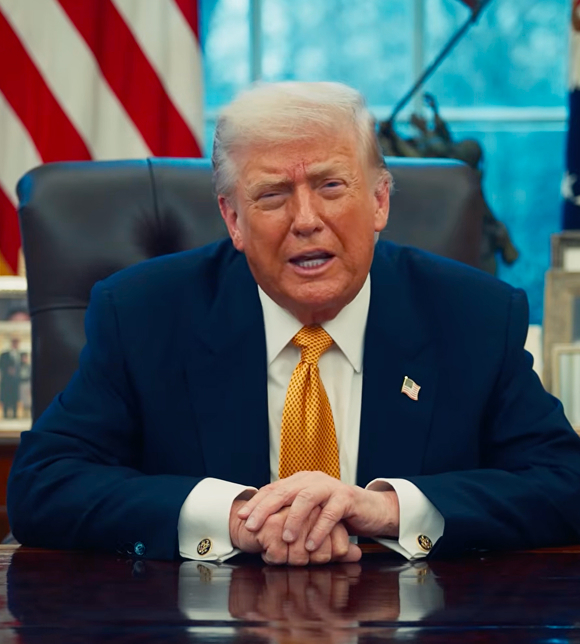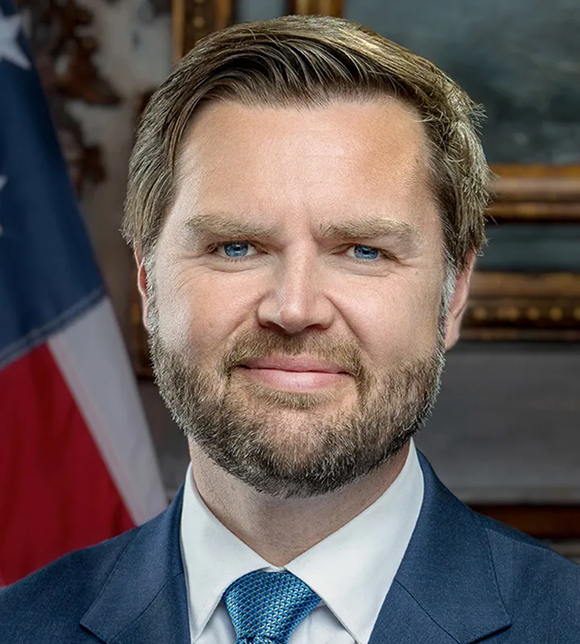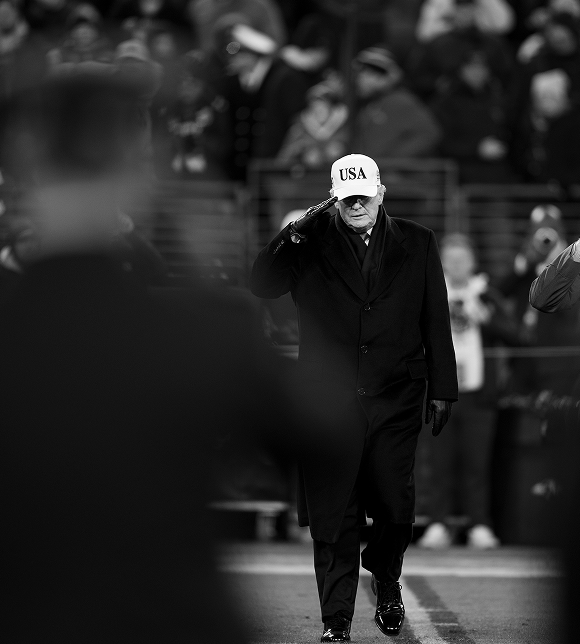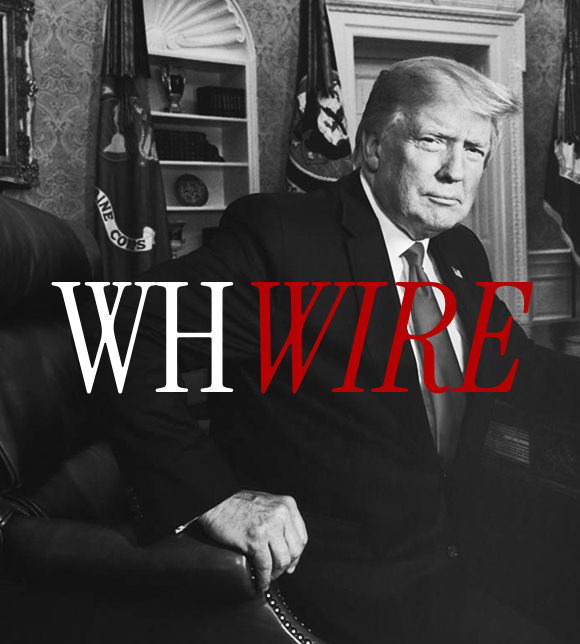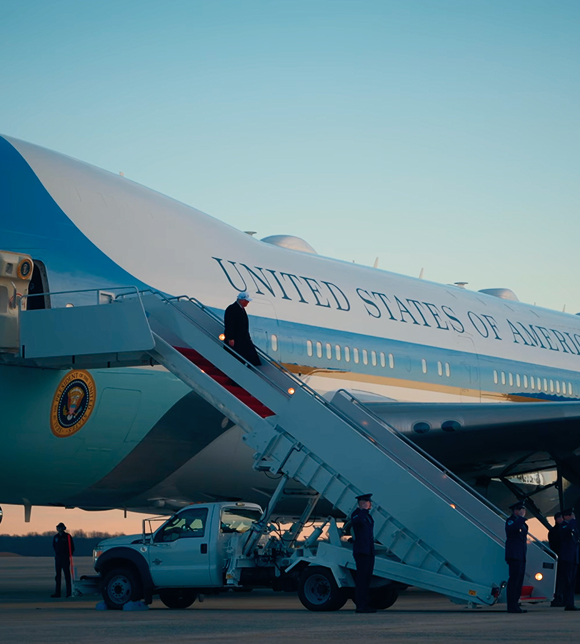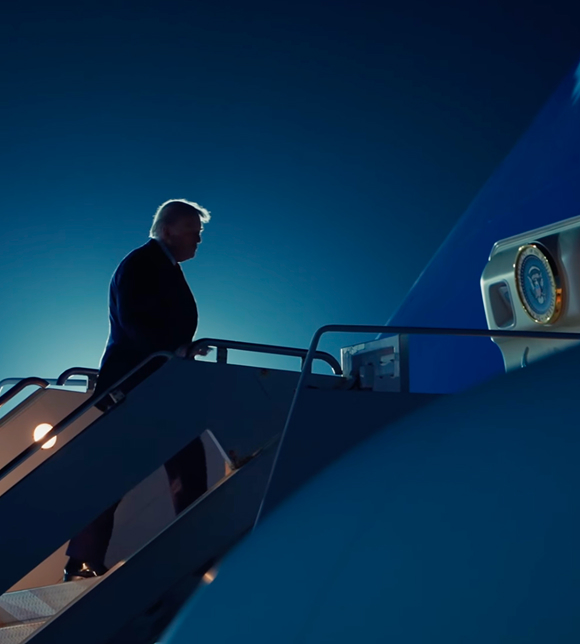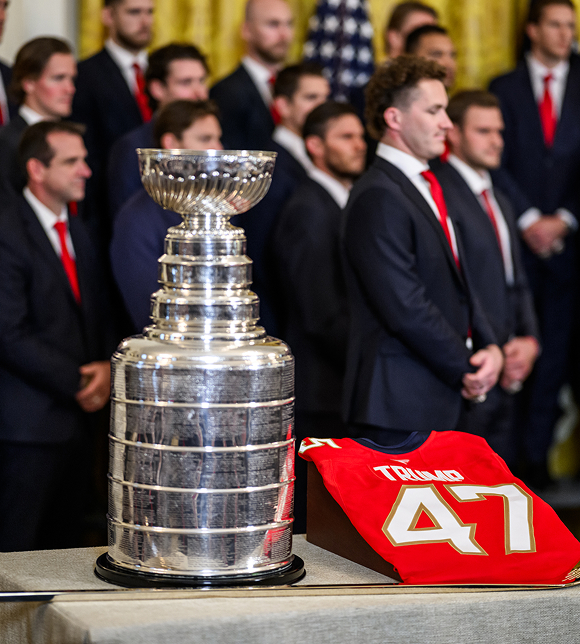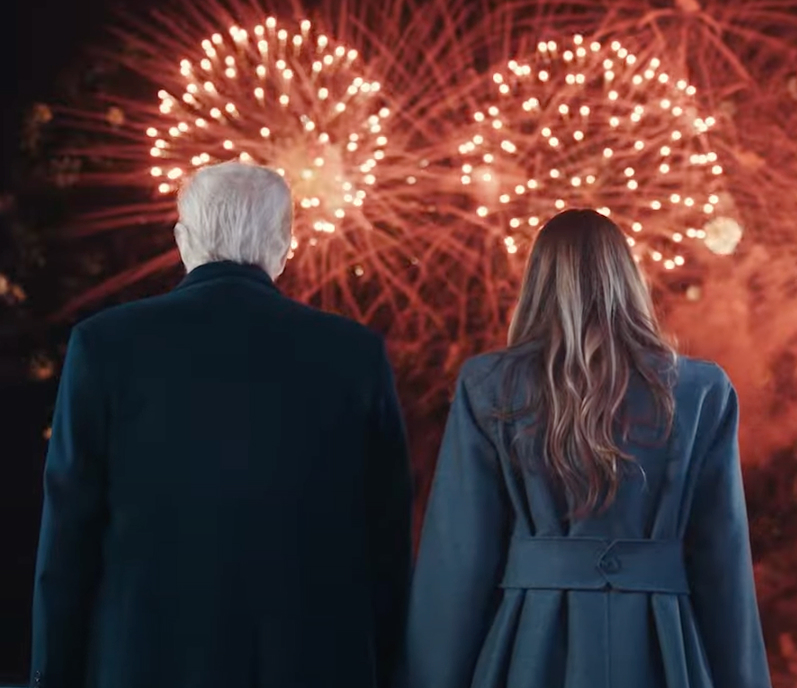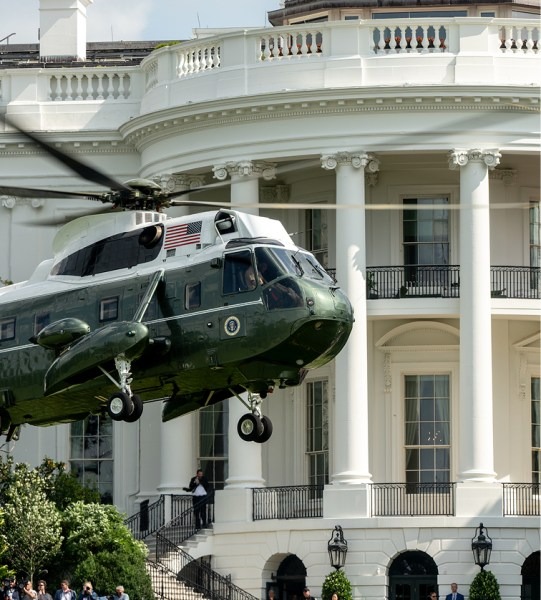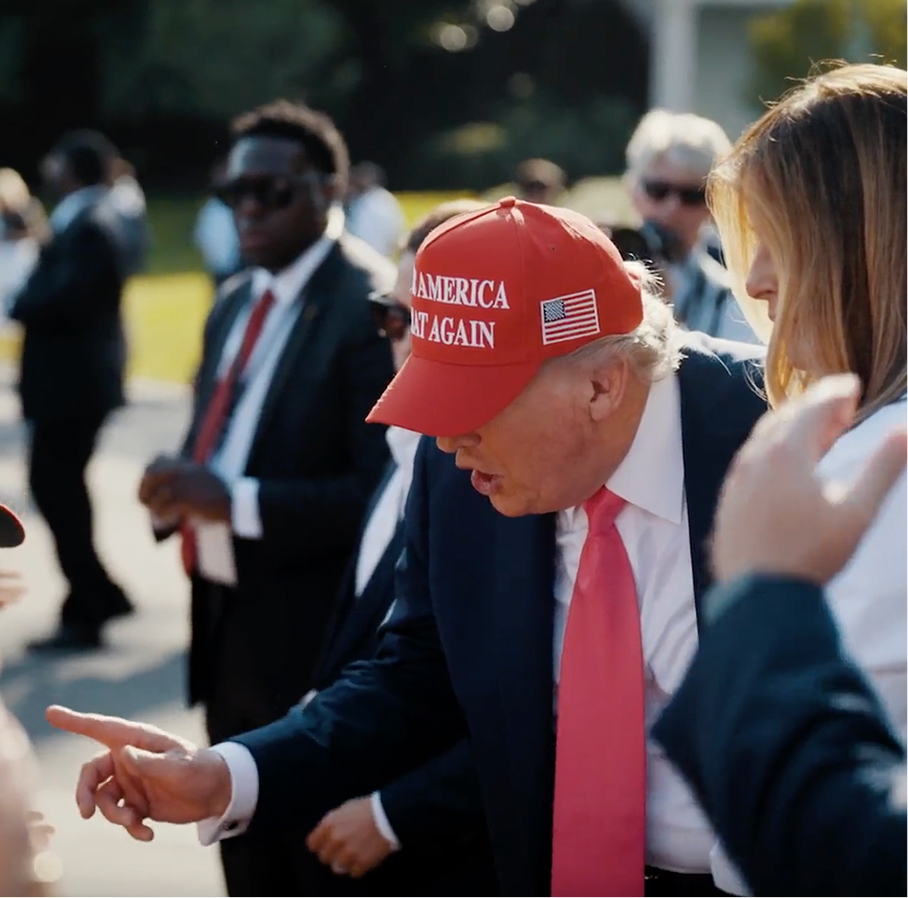By the authority vested in me as President by the Constitution and the laws of the United States of America, including the International Emergency Economic Powers Act (50 U.S.C. 1701 et seq.) (IEEPA), the National Emergencies Act (50 U.S.C. 1601 et seq.), section 604 of the Trade Act of 1974, as amended (19 U.S.C. 2483), and section 301 of title 3, United States Code, it is hereby ordered:
Section 1. Background. In Executive Order 14193 of February 1, 2025 (Imposing Duties To Address the Flow of Illicit Drugs Across Our Northern Border), I declared a national emergency regarding the unusual and extraordinary threat to the safety and security of Americans, including the public health crisis caused by fentanyl and other illicit drugs and the failure of Canada to do more to arrest, seize, detain, or otherwise intercept drug trafficking organizations, other drug and human traffickers, criminals at large, and illicit drugs. In that order, I determined that it was necessary and appropriate to, among other things, suspend duty-free de minimis treatment under 19 U.S.C. 1321(a)(2)(C) for articles described in section 2(a) and section 2(b) of that order. In Executive Order 14226 of March 2, 2025 (Amendment to Duties To Address the Flow of Illicit Drugs Across Our Northern Border), I paused the suspension of duty-free de minimis treatment on such articles until I received a notification from the Secretary of Commerce (Secretary) that adequate systems are in place to fully and expeditiously process and collect duties for such articles that would otherwise be eligible for duty-free de minimis treatment.
In Executive Order 14194 of February 1, 2025 (Imposing Duties To Address the Situation at Our Southern Border), I declared a national emergency regarding the unusual and extraordinary threat to the safety and security of Americans, including the public health crisis caused by fentanyl and other illicit drugs and the failure of Mexico to do more to arrest, seize, detain, or otherwise intercept drug trafficking organizations, other drug and human traffickers, criminals at large, and illicit drugs. In that order, I determined that it was necessary and appropriate to, among other things, suspend duty-free de minimis treatment under 19 U.S.C. 1321(a)(2)(C) for articles described in section 2(a) of that order. In Executive Order 14227 of March 2, 2025 (Amendment to Duties To Address the Situation at Our Southern Border), I paused the suspension of duty-free de minimis treatment on such articles until I received a notification from the Secretary that adequate systems are in place to fully and expeditiously process and collect duties for such articles that would otherwise be eligible for duty-free de minimis treatment.
In Executive Order 14195 of February 1, 2025 (Imposing Duties To Address the Synthetic Opioid Supply Chain in the People’s Republic of China), I declared a national emergency regarding the unusual and extraordinary threat from the failure of the Government of the People’s Republic of China (PRC) to arrest, seize, detain, or otherwise intercept chemical precursor suppliers, money launderers, other transnational criminal organizations, criminals at large, and illicit drugs. In that order, I determined that it was necessary and appropriate to, among other things, suspend duty-free de minimis treatment under 19 U.S.C. 1321(a)(2)(C) for articles described in section 2(a) of that order. In Executive Order 14200 of February 5, 2025 (Amendment to Duties Addressing the Synthetic Opioid Supply Chain in the People’s Republic of China), I paused the suspension of duty-free de minimis treatment for articles described in section 2(a) of Executive Order 14195 until I received a notification from the Secretary that adequate systems are in place to fully and expeditiously process and collect duties for such articles that would otherwise be eligible for duty-free de minimis treatment.
I subsequently received notification from the Secretary that adequate systems have been established to process and collect duties for articles of the PRC and Hong Kong that would otherwise be eligible for duty-free de minimis treatment, and in Executive Order 14256 of April 2, 2025 (Further Amendment to Duties Addressing the Synthetic Opioid Supply Chain in the People’s Republic of China as Applied to Low-Value Imports), I suspended duty-free de minimis treatment under 19 U.S.C. 1321(a)(2)(C) for products of the PRC and Hong Kong described in section 2(a) of Executive Order 14195, as amended by Executive Order 14228 (Further Amendment to Duties Addressing the Synthetic Opioid Supply Chain in the People’s Republic of China). In addition, I instructed the Secretary to submit a report regarding the impact of Executive Order 14256 on American industries, consumers, and supply chains and to make recommendations for further action as he deems necessary.
In Executive Order 14257 of April 2, 2025 (Regulating Imports With a Reciprocal Tariff To Rectify Trade Practices That Contribute to Large and Persistent Annual United States Goods Trade Deficits), I declared a national emergency with respect to underlying conditions indicated by the large and persistent annual U.S. goods trade deficits. I also provided that duty-free de minimis treatment under 19 U.S.C. 1321(a)(2)(C) would remain available for products described in section 3(a) of that order until I received a notification by the Secretary that adequate systems are in place to fully and expeditiously process and collect duties applicable for articles otherwise eligible for duty-free de minimis treatment.
The Secretary has notified me that adequate systems are now in place to fully and expeditiously process and collect duties for articles otherwise eligible for duty-free de minimis treatment on a global basis, including for products described in section 2(a) and section 2(b) of Executive Order 14193, section 2(a) of Executive Order 14194, and section 3(a) of Executive Order 14257.
In my judgment, I determine that it is still necessary and appropriate to suspend duty-free de minimis treatment under 19 U.S.C. 1321(a)(2)(C) in the manner and for the articles described below to deal with the unusual and extraordinary threats, which have their source in whole or substantial part outside the United States, to the national security, foreign policy, and economy of the United States.
I determine that it is necessary and appropriate to suspend duty-free de minimis treatment under 19 U.S.C. 1321(a)(2)(C) for certain Canadian goods to deal with the emergency declared in Executive Order 14193, as amended. In my judgment, this suspension is necessary and appropriate to ensure that the tariffs imposed by Executive Order 14193, as amended, are effective in addressing the emergency declared in Executive Order 14193 and that the purpose of this action and other actions to address the emergency declared in Executive Order 14193 is not undermined. For example, many shippers go to great lengths to evade law enforcement and hide illicit substances in imports that go through international commerce. These shippers conceal the true contents of shipments sent to the United States through deceptive shipping practices. Some of the techniques employed by these shippers to conceal the true contents of the shipments, the identity of the distributors, and the country of origin of the imports include the use of re-shippers in the United States, false invoices, fraudulent postage, and deceptive packaging. The risks of evasion, deception, and illicit-drug importation are particularly high for low-value articles that have been eligible for duty-free de minimis treatment.
Independently, I determine that it is necessary and appropriate to suspend duty-free de minimis treatment under 19 U.S.C. 1321(a)(2)(C) for certain Mexican goods to deal with the emergency declared in Executive Order 14194, as amended. In my judgment, and for substantially similar reasons as above, this suspension is necessary and appropriate to ensure that the tariffs imposed by Executive Order 14194, as amended, are effective in addressing the emergency declared in Executive Order 14194 and that the purpose of this action and other actions to address the emergency declared in Executive Order 14194 is not undermined.
Independently, and after considering information newly provided by the Secretary, among other things, I determine that it is still necessary and appropriate to continue to suspend duty-free de minimis treatment under 19 U.S.C. 1321(a)(2)(C) for certain goods of the PRC and Hong Kong to deal with the emergency declared in Executive Order 14195, as amended. In my judgment, and for substantially similar reasons as above, this suspension is still necessary and appropriate to ensure that the tariffs imposed by Executive Order 14195, as amended, are effective in addressing the emergency declared in Executive Order 14195 and that the purpose of this action and other actions to address the emergency declared in Executive Order 14195 is not undermined.
Also independently, I determine that it is necessary and appropriate to suspend duty-free de minimis treatment under 19 U.S.C. 1321(a)(2)(C) on a global basis to deal with the emergency declared in Executive Order 14257, as amended. In my judgment, this suspension is necessary and appropriate to ensure that the tariffs imposed by Executive Order 14257, as amended, are not evaded and are effective in addressing the emergency declared in Executive Order 14257 and that the purpose of this action and other actions to address the emergency declared in Executive Order 14257 is not undermined.
Each of my determinations to suspend or continue to suspend duty-free de minimis treatment under 19 U.S.C. 1321(a)(2)(C) are independent from the other. And each determination is made only for the purpose to deal with the respective emergency and not for the purpose of dealing with another emergency.
Sec. 2. Suspension of Duty-Free de minimis Treatment. (a) The duty-free de minimis exemption provided under 19 U.S.C. 1321(a)(2)(C) shall no longer apply to any shipment of articles not covered by 50 U.S.C. 1702(b), regardless of value, country of origin, mode of transportation, or method of entry. Accordingly, all such shipments, except those sent through the international postal network, shall be subject to all applicable duties, taxes, fees, exactions, and charges. International postal shipments not covered by 50 U.S.C. 1702(b) shall be subject to the duty rates described in section 3 of this order. Entry for all shipments that — prior to the effective date of this order — qualified for the de minimis exemption, except for shipments sent through the international postal network, shall be filed using an appropriate entry type in the Automated Commercial Environment (ACE) by a party qualified to make such entry.
(b) Shipments sent through the international postal network that would otherwise qualify for the de minimis exemption under 19 U.S.C. 1321(a)(2)(C) shall pass free of any duties except those specified in section 3 of this order, and without the preparation of an entry by U.S. Customs and Border Protection (CBP), until such time as CBP establishes a new entry process and publishes that process in the Federal Register.
Sec. 3. Duty Rates for International Postal Shipments. (a) Transportation carriers delivering shipments to the United States through the international postal network, or other parties if qualified in lieu of such transportation carriers, must collect and remit duties to CBP using the methodology described in either subsection (b) or (c) of this section. Each transportation carrier shall apply the same methodology across all covered shipments during any given period but may change its methodology no more than once per calendar month, or on another schedule determined to be appropriate by CBP, upon providing at least 24 hours’ notice to CBP.
(b) A duty equal to the effective IEEPA tariff rate applicable to the country of origin of the product shall be assessed on the value of each dutiable postal item (package) containing goods entered for consumption.
(c) A specific duty shall be assessed on each package containing goods entered for consumption, based on the effective IEEPA tariff rate applicable to the country of origin of the product as follows:
(i) Countries with an effective IEEPA tariff rate of less than 16 percent: $80 per item;
(ii) Countries with an effective IEEPA tariff rate between 16 and 25 percent (inclusive): $160 per item; and
(iii) Countries with an effective IEEPA rate above 25 percent: $200 per item.
(d) For all international postal shipments subject to the methodologies described in subsections (b) and (c) of this section, the country of origin of the article must be declared to CBP.
(e) The specific duty methodology provided for in subsection (c) of this section shall be available for transportation carriers to select for a period of 6 months from the effective date of this order. After such time all shipments to the United States through the international postal network must comply with the ad valorem duty methodology in subsection (b) of this section.
(f) Shipments sent through the international postal network that are subject to antidumping and countervailing duties or a quota must continue to be entered under an appropriate entry type in ACE to the extent required by all applicable regulations.
Sec. 4. Implementation. (a) The requirements and procedures established by sections 2 and 3 of this order shall be effective with respect to goods entered for consumption, or withdrawn from warehouse for consumption, on or after 12:01 a.m. eastern daylight time on August 29, 2025.
(b) The provisions of this order supersede section 2 of Executive Order 14256, as amended, with respect to goods entered for consumption, or withdrawn from warehouse for consumption, on or after 12:01 a.m. eastern daylight time on August 29, 2025.
(c) Consistent with applicable law, the Secretary of Homeland Security is directed and authorized to take all necessary actions to implement and effectuate this order — including through temporary suspension or amendment of regulations or through notices in the Federal Register and by adopting rules, regulations, or guidance — and to employ all powers granted to the President by IEEPA as may be necessary to implement and effectuate this order. The Secretary of Homeland Security, in consultation with the United States International Trade Commission (ITC), shall determine whether modifications to the Harmonized Tariff Schedule of the United States are necessary to effectuate this order and may make such modifications through notice in the Federal Register. The Secretary of Homeland Security shall consult with the Secretary of State, the Secretary of the Treasury, the Attorney General, the Secretary of Commerce, the United States Trade Representative, the ITC, and the Postmaster General, where appropriate. The Secretary of Homeland Security may, consistent with applicable law, redelegate any of these functions within the Department of Homeland Security. All executive departments and agencies shall take all appropriate measures within their authority to implement this order.
(d) To ensure remittance of duties in accordance with this order, and to assure compliance with other legal requirements, CBP is authorized to require a basic importation and entry bond as described in 19 C.F.R. 113.62 for informal entries valued at or less than $2,500. Any carrier that transports international postal shipments to the United States, by any mode of transportation, must have an international carrier bond as described in 19 C.F.R. 113.64 to ensure payment of the duties described in section 3 of this order. CBP is authorized to ensure that the international carrier bonds required by this subsection are sufficient to account for the duties described in section 3 of this order.
Sec. 5. Definition. As used in this order, the term “effective IEEPA tariff rate” means the total duty rate imposed on articles to address a national emergency declared under IEEPA, including Executive Order 14257, as amended; Executive Order 14193; as amended, Executive Order 14194, as amended; and Executive Order 14195, as amended, in accordance with the stacking rules set out in Executive Order 14289 of April 29, 2025 (Addressing Certain Tariffs on Imported Articles), and any subsequent order or proclamation addressing stacking or the applicability of tariffs imposed under IEEPA.
Sec. 6. Severability. (a) If any provision of this order or the application of any provision of this order to any individual or circumstance is held to be invalid, the remainder of this order and the application of its provisions to any other individuals or circumstances shall not be affected.
(b)(i) If the additional duties imposed under Executive Order 14193, as amended, Executive Order 14194, as amended, Executive Order 14195, as amended, or Executive Order 14257, as amended, are held to be invalid, the suspension of, or continued suspension of, duty-free de minimis treatment, as detailed in this order, shall not be affected. Duty-free de minimis treatment would still be suspended, whether pursuant to my authority under 50 U.S.C. 1702(a)(1)(B) to “regulate . . . importation” or my authority under that provision to “nullify” or “void” “exercising any right . . . or privilege with respect to . . . any property,” in the way and to the extent explained in this order, to deal with the emergencies declared in Executive Order 14193, as amended, Executive Order 14194, as amended, Executive Order 14195, as amended, or Executive Order 14257, as amended. Such suspensions are still necessary and appropriate to address the unusual and extraordinary threats to the national security, foreign policy, and economy of the United States. Each determination to suspend or continue to suspend duty-free de minimis treatment is still independent from the other determination and made only with the purpose to deal with the respective emergency and not for the purpose of dealing with another emergency. CBP is directed and authorized to take all necessary actions consistent with applicable law to implement and effectuate this order in line with this section ‑- including through temporary suspension or amendment of regulations or through notices in the Federal Register and by adopting rules, regulations, or guidance — and to employ all powers granted to the President by IEEPA as may be necessary to implement and effectuate this order in line with this section.
(ii) Duty-free de minimis treatment under 19 U.S.C. 1321(a)(2)(C) shall remain available for postal shipments until notification by the Secretary to the President that adequate systems are in place to fully and expeditiously process and collect duties applicable for postal shipments otherwise eligible for duty-free de minimis treatment. After such notification, duty-free de minimis treatment under 19 U.S.C. 1321(a)(2)(C) shall not be available for postal shipments.
Sec. 7. General Provisions. (a) Nothing in this order shall be construed to impair or otherwise affect:
(i) the authority granted by law to an executive
department or agency, or the head thereof; or
(ii) the functions of the Director of the Office of Management and Budget relating to budgetary, administrative, or legislative proposals.
(b) This order shall be implemented consistent with applicable law and subject to the availability of appropriations.
(c) This order is not intended to, and does not, create any right or benefit, substantive or procedural, enforceable at law or in equity by any party against the United States, its departments, agencies, or entities, its officers, employees, or agents, or any other person.
(d) The costs for publication of this order shall be borne by the Department of Homeland Security.
DONALD J. TRUMP
THE WHITE HOUSE,
July 30, 2025.
